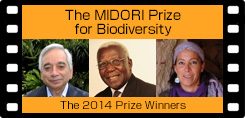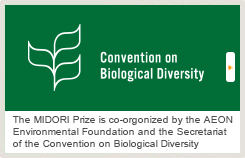22/10/2012
The Winners' Forum of The MIDORI Prize for Biodiversity held
The Winners’ Forum of The MIDORI Prize for Biodiversity was held by the AEON Environmental Foundation on 22 October 2012 at the U Thant Hall of the United Nations University in Tokyo, in collaboration with the Secretariat of the Convention on Biological Diversity.
At the Forum, lectures by the three winners of the MIDORI Prize 2012 and the panel discussion moderated by Prof. Shiro Wakui of Tokyo City University took place.
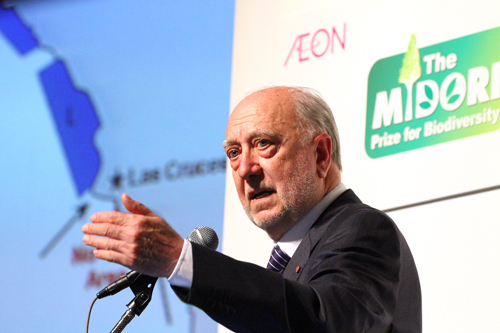
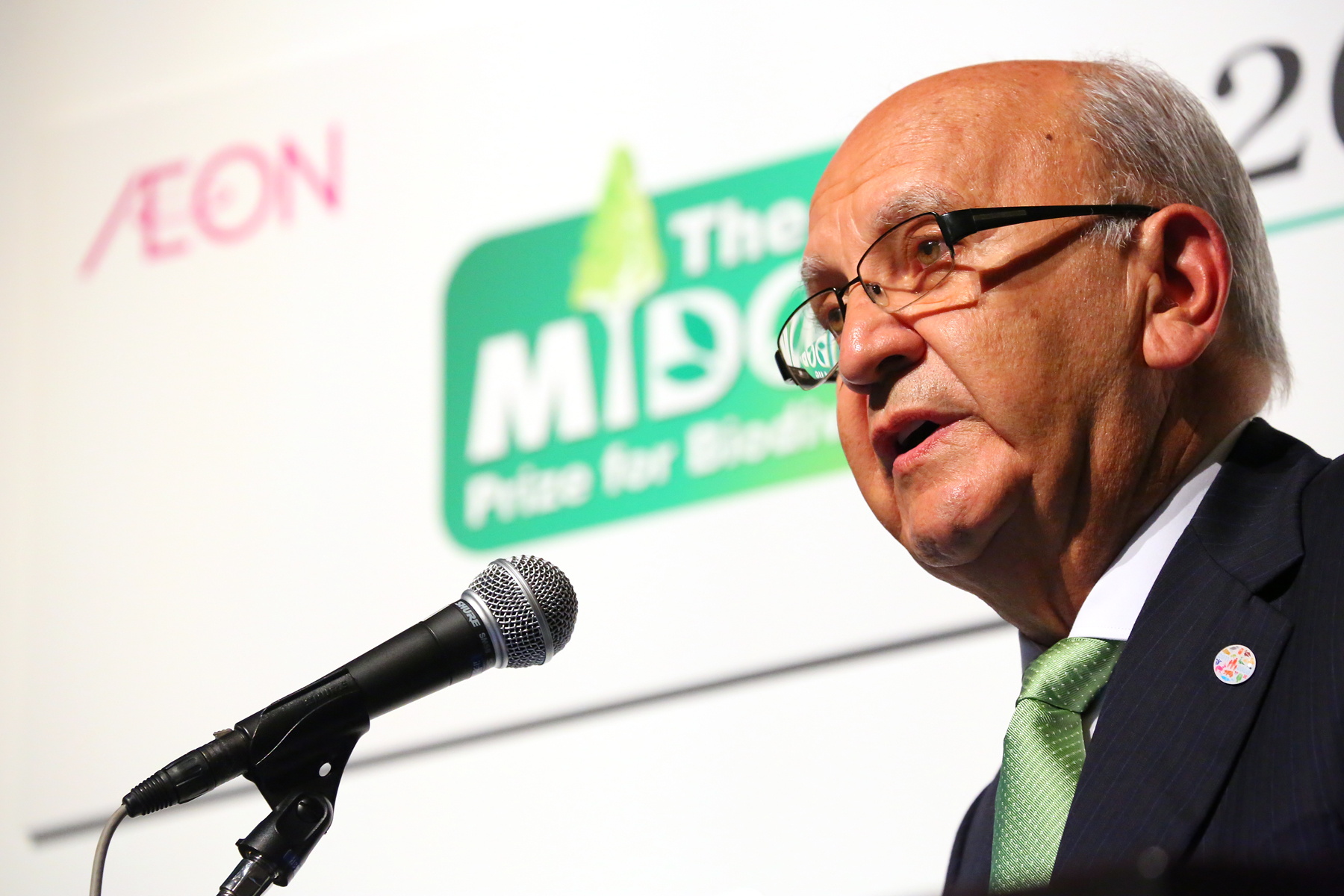
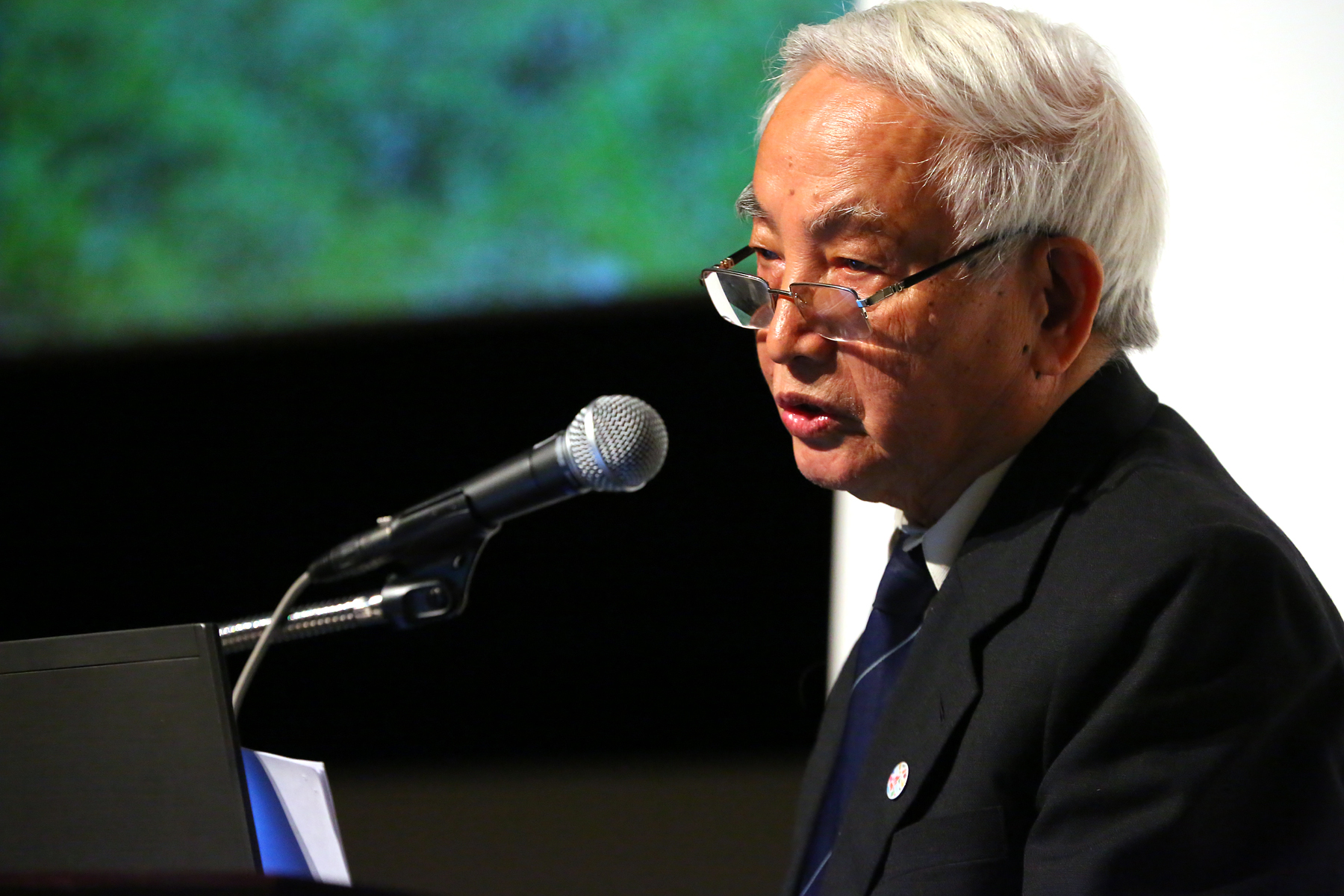
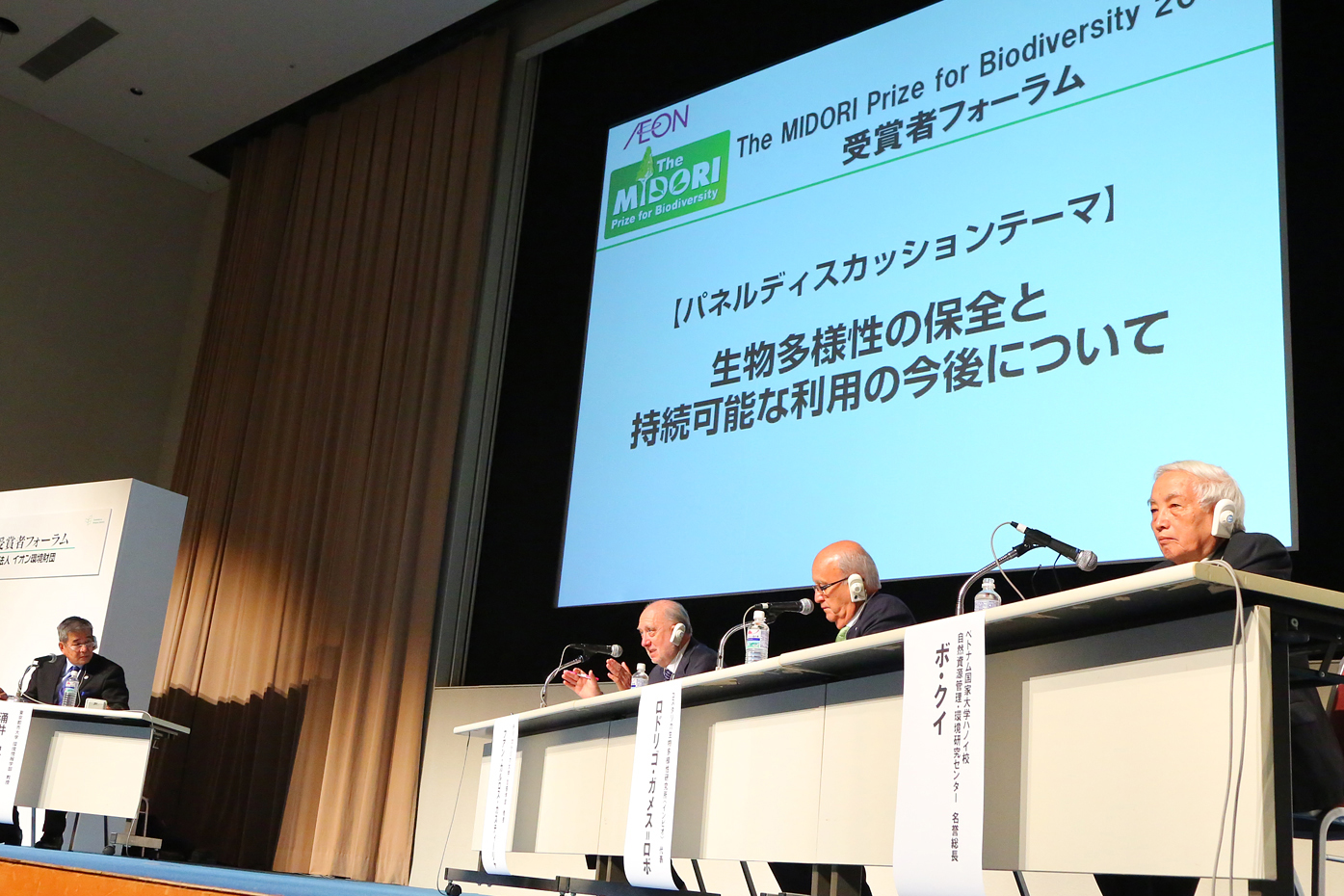 At the panel discussion, Dr. Castilla said that the organization of fisher communities and co-management of the small scale MPAs could be effectively utilized as an earthquake disaster countermeasure also in Japan, by introducing an experience in Chile. Even after the massive earthquake in 2010, the Chilean fisher communities could quickly recover as the communities were organized before the disaster.
At the panel discussion, Dr. Castilla said that the organization of fisher communities and co-management of the small scale MPAs could be effectively utilized as an earthquake disaster countermeasure also in Japan, by introducing an experience in Chile. Even after the massive earthquake in 2010, the Chilean fisher communities could quickly recover as the communities were organized before the disaster.
Dr. Gamez, who has made diverse efforts for environmental education, said about the great changes in awareness of the residents. Some of them said “When I imagine what I can find tomorrow, I am too excited to sleep”, or “I would like to learn about new things and share them with other communities.”
Dr. Vo Quy talked about his experience in Viet Nam. Amid conflicting reports about adverse effects of defoliants, he conducted field investigations in order to confirm what happened. He confirmed harmful effects of defoliants on ecosystem and humans, provided places for discussions with overseas experts, and asked the USA for cooperation. The war devastated forests in Viet Nam was successfully re-greened through these activities.
Lecture titles:
Integrating People’s Livelihood into Marine Conservation Efforts
Dr. Juan Carlos Castilla
Professor, Marine Ecology, Department of Ecology, Pontificia Universidad Catolica de Chile
Our Quest for an Alliance with Nature
Dr. Rodrigo Gamez-Lobo
President, Instituto Nacional de Biodiversidad (INBio)
Preserving Biodiversity – Plant the Trees and Regreen the Land
Dr. Vo Quy
Honorary President, Center for Natural Resources Management and Environmental Studies (CRES), Vietnam National University, Hanoi








